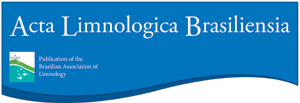AIM: This study tested whether the macroconsumer Aegla longirostri is able to modify the invertebrate community associated with decomposing leaves. METHODS: The study was performed in a first-order stream located in central Rio Grande do Sul state. Two types of channels containing leaf litter of Ficus luschnathiana were placed in the stream; one type allowed aeglids to access the leaf litter (PA), and the other type did not (AA). Both types allowed aquatic insects to access the leaf litter. In addition, a control treatment (C) was established, in which no channel was used. After 3, 7, 11, 15 and 19 days, a litter bag was removed from each replicate of each treatment. RESULTS: A total of 926 organisms belonging to 19 families were identified. The most common taxon in all treatments was Chironomidae, which comprised 71% of the total and was represented by 16 genera. The presence of aeglids decreased the total abundance of organisms by 89% and the taxonomic richness by 35%. The presence of A. longirostri altered the taxonomic composition of the invertebrates and the structure of the trophic groups, causing a decrease in the abundance of all groups, except for shredders and predators. The gathering-collectors trophic group was the most important (65%), in both the presence and absence of A. longirostri. CONCLUSION: Our study showed that A. longirostri, as well as other macroconsumers, was able to modify the structure of the invertebrate community associated with decomposing leaves in the stream.
Chironomidae; shredder; trophic group; predator






